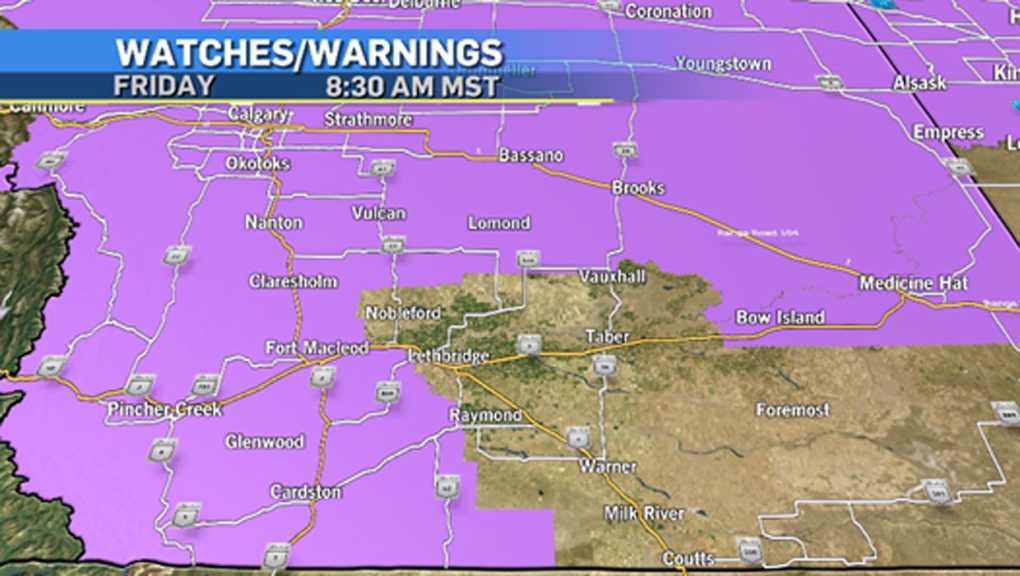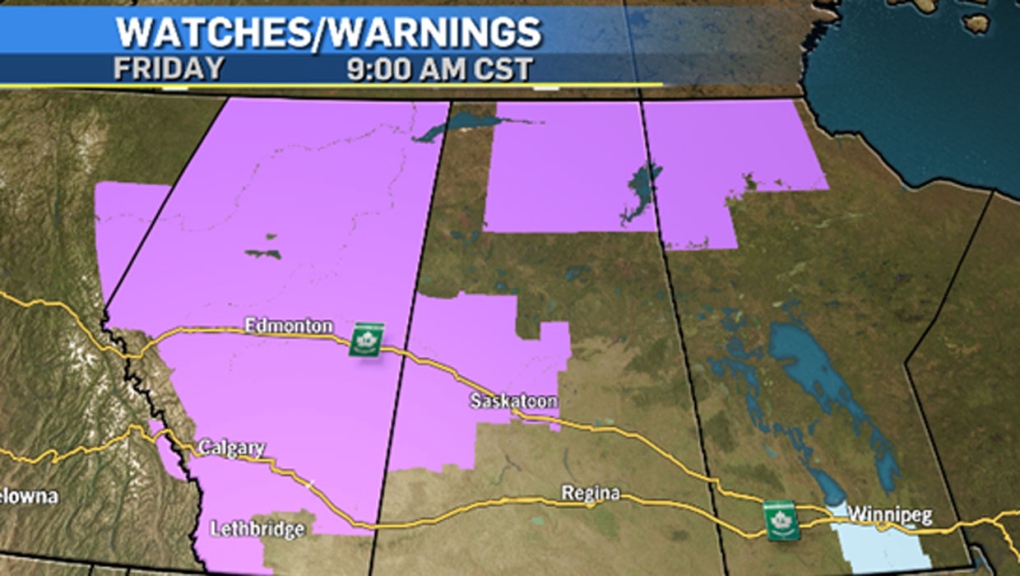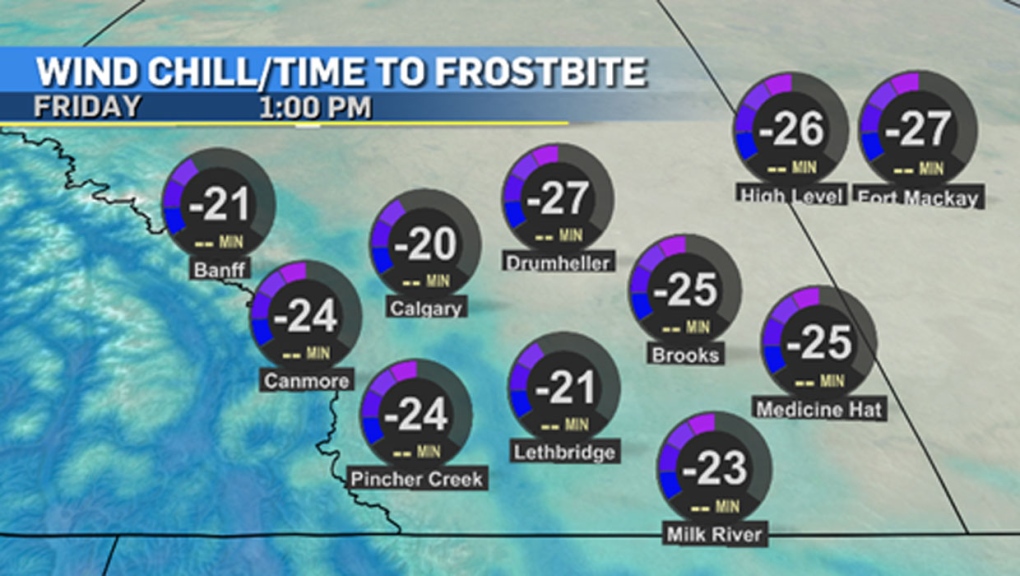Extreme cold warning called for Calgary and much of Alberta
 A large portion of Alberta is under an extreme cold warning for Friday, but some relief is expected on the way for Saturday.
A large portion of Alberta is under an extreme cold warning for Friday, but some relief is expected on the way for Saturday.
Frigid temperatures have prompted an extreme cold warning for Calgary and the majority of Alberta on Friday.
Environment and Climate Change Canada (ECCC) issued the alert at about 4 a.m. because of "extremely cold wind chill values" expected throughout the morning.
Those conditions are expected to dissipate by the afternoon, but the agency says the cold will return Friday evening in a number of regions.
"Extreme cold puts everyone at risk," ECCC said in the online advisory. "Risks are greater for young children, older adults, people with chronic illnesses, people working or exercising outdoors, and those without proper shelter."
CTV Calgary weather specialist Ryan Harding says the wind chill is expected to drop once the wind speed falls below five km/h.
There will be some relief from the cold on the weekend, he says.
"We've got some winds coming from the west, 35 km/h, warming to -6 C then Sunday -1 C," Harding said.
"Monday and Tuesday are back into cold wind chills. Wednesday and Thursday – chinooks with positive temps."
He says the coldest temperatures in the Alberta region were Calgary at -31 C and Red Deer at -42, but Brooks, Alta., was the worst at -43 C.


ECCC says extreme cold warnings are called when "very cold temperatures or wind chill creates an elevated risk to health" including conditions directly related to the cold such as frostbite and hypothermia.
It suggests anyone going outside should dress warmly and wear several layers that you can remove in case you become too warm.
CTVNews.ca Top Stories

Joe Biden drops out of 2024 race, endorses Kamala Harris to be Democratic nominee
U.S. President Joe Biden dropped out of the 2024 race for the White House on Sunday, ending his bid for re-election after doubts were raised about his fitness for office. Soon after, he endorsed Vice-President Kamala Harris to take his place in the November election.
Justin Trudeau reacts to Joe Biden announcing he won't run for re-election
Prime Minister Justin Trudeau responded to the news that U.S. President Joe Biden won’t run for re-election Sunday, calling Biden a 'true friend.'
Joe Biden wants to pass the baton to Kamala Harris. Here's how that might work
With U.S. President Joe Biden ending his re-election bid and endorsing Vice-President Kamala Harris, Democrats now must navigate a shift that is unprecedented this late in an election year.
The pilot who died in crash after releasing skydivers near Niagara Falls has been identified
NEW YORK (AP) — Officials on Sunday released the name of a pilot who died in a skydiving flight after her passengers jumped from the aircraft near the Niagara Falls.
Woman found dead in the water near Sunset Beach: Vancouver police
Investigators were at Vancouver’s Sunset Beach after a woman’s body was found in the water Sunday morning, according to authorities.
Ottawa man waiting nearly a year for car to be fixed at Acura dealership
An Ottawa man says he’s been waiting nearly a year for his car to be repaired after it was damaged during a storm in August.
Canadian musicians struggle to get visas to perform in the U.S., some cancel shows
Backlogs and processing delays of temporary U.S. visas required by entertainers, athletes and artists has forced some Canadian bands to cancel U.S. tour dates because paperwork wasn't processed in time.
Joy in Newfoundland after 'Lucky 7' fishers survive harrowing days lost at sea
There was a powerful word being repeated in the joyful Newfoundland community of New-Wes-Valley on Sunday: 'Miracle.'
A Florida woman was killed 24 years ago. DNA evidence just helped police make an arrest in the cold case
A Florida woman’s brutal killing nearly 25 years ago may finally be solved after authorities arrested the suspect this week, according to the Sanford Police Department.





























